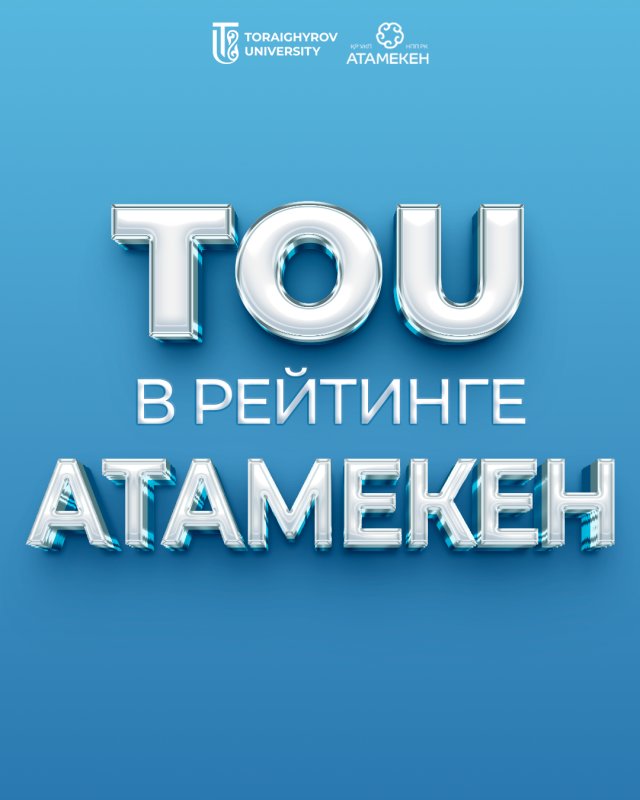Traditionally, the Chamber of Entrepreneurs of the Republic of Kazakhstan "Atameken" compiles a ranking of educational programs of the country's universities.

According to the data, out of 46 educational programs, 24 are included in the top 30% in their respective fields of study. Among them, nine programs took the first place: "Russian Philology," "Biology," "Ecology," "Geography," "Mechanical Engineering," "Transport Construction," "Standardization, Certification, and Metrology (by industry)," "Social Work," and "Life Safety and Environmental Protection." Five programs took the second place: "Kazakh Philology," "Biotechnology," "Architecture," "Production of Building Materials, Products, and Structures," and "Forest Resources and Forestry."
The results of the ranking show that the graduates' salaries have significantly increased. For example, the average salary of graduates in 2022 from the educational program "Chemical Technologies of Organic Substances" was 334,072 tenge, while in 2023, it reached 405,036 tenge. Additionally, the duration of job search after graduation has decreased. For example, for the educational program "Public and Local Administration," it is only one month.
"Being included in the Atameken rankings confirms that we are moving in the right direction. Today, our goal is to strengthen dual education and the practical orientation of educational programs offered by the university. That is why we strive to work on personnel training in close cooperation with major employers in the region. Only then can we produce truly relevant and strong specialists," noted the rector of the university, Yerkin Sadykov.
The Atameken Chamber's ranking is a new direction in ranking educational institutions, with the goal of bridging the academic world and the labor market for the most rational personnel training.
The analysis includes the career prospects of university graduates, the employment rate of graduates, the duration of job search after graduation, the average salary level, the number of practicing teachers and foreign instructors, the accreditation of the educational institution, expert evaluation from employers, and other factors.






